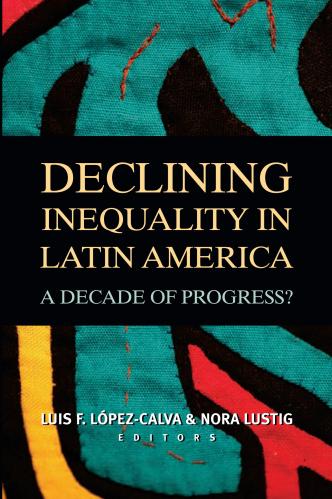Studies in this week’s Hutchins Roundup find that macroprudential policies dampen global financial shocks in emerging markets, bank credit decisions exert substantial effects on upward mobility, and more.
Want to receive the Hutchins Roundup as an email? Sign up here to get it in your inbox every Thursday.
Macroprudential policies dampen global financial shocks in emerging markets
Using data on 38 emerging markets between 2000 and 2016, Katharina Bergant of the IMF and coauthors find that macroprudential policies help insulate emerging economies against global financial shocks. Policies targeting bank capital and liquidity, foreign exchange, and risky forms of credit are more effective than conventional tools such as capital controls but become less effective at stringent levels of regulation. Tighter macroprudential regulation also allows monetary policy to respond counter-cyclically to global financial shocks. Central banks in emerging economies typically increase rates when global financial conditions tighten in order to stem capital outflows and prevent exchange rate depreciation. Macroprudential regulations can alleviate these financial stability concerns, they say, allowing monetary policy to focus on macroeconomic stabilization.
Bank credit decisions exert substantial effects on upward mobility
Using unique and detailed data on small-business applicants for bank loans in a rich northern European country, Manthos Delis, Fulvia Fringuellotti, and Steven Ongena from the Federal Reserve Bank of New York study how access to credit affects income growth and inequality. The bank approved loan requests from applicants with credit scores above a specific cutoff and denied them for everyone else, providing a way to assess the causal impact of credit. The authors find that, five years after application, the income of accepted applicants is 11% higher than the income of applicants who were denied because their credit score was just below the cutoff. This is largely because successful applicants invest more in their businesses and enjoy greater profits and growth as a result. The authors conclude that efficient credit decisions increase individuals’ economic mobility and that getting a loan provides a bigger boost to income in low-income regions than high-income regions, thereby reducing inequality. They argue that their results lend support for policies aimed at increasing credit access for loan applicants rejected due to lack of credit history or collateral.
Who is most affected by the COVID-19 recession?
Truc Thi Mai Bui, Patrick Button, and Alyce G. Picciotti of Tulane University argue that older workers, particularly women, have been hardest hit by the COVID-19 recession. Using the Current Population Survey, they find that approximately 19% of women and 17% of men over the age of 65 who were employed before the recession have lost their jobs. In contrast, only 10% of women and 13% of men aged 55-64, and 14% of women and 13% of men aged 25-44 who were employed before the recession have become unemployed. Moreover, the authors note that, during recessions, unemployed older workers often seek “bridge” jobs to delay dipping into an unexpectedly underfunded retirement account or taking Social Security. However, such jobs are more likely to require face-to-face contact: a danger to older workers in a pandemic where individuals over 55 years old constitute more than 90% of COVID-19 deaths. The authors conclude that this recession has and will continue to hurt older workers more than other recessions.
Chart of the week: Higher-wage job postings haven’t picked up
Quote of the week
“In many of their aims, central banks have succeeded. Financial markets have stabilised, equity markets have quickly recovered, and spreads have narrowed again. The corporate sector has resorted to new issuance on a generous scale. Even so, many challenges lie ahead. Financial markets may have become too complacent – given that we are still at an early stage of the crisis and its fallout. The outlook for the world economy is still highly uncertain. At best, we have only just overcome the liquidity phase of the crisis in the countries that are now relaxing restrictions. In many others, the health crisis is still acute. And the epidemic could flare up again anywhere,” says Agustín Carstens, General Manager of the Bank for International Settlements.
“Importantly, the shock to solvency is still to be fully felt. In this stage, the heavy lifting is expected to come from fiscal authorities. Business insolvencies and personal hardship may well increase. When this happens, possibly triggered by cliff effects as initial fiscal support runs out and payment moratoriums expire, banks will find themselves in the eye of the storm.”
The Brookings Institution is committed to quality, independence, and impact.
We are supported by a diverse array of funders. In line with our values and policies, each Brookings publication represents the sole views of its author(s).












Commentary
Hutchins Roundup: Macroprudential policies, credit access, and more
July 2, 2020